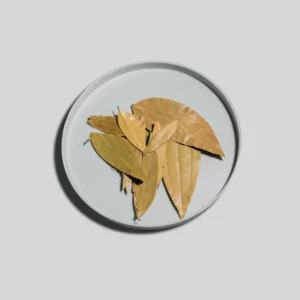Ajwain Seeds
$7.84
The flavor of ajwain seeds are robust and spicy, and its scent is one of a kind. The cuisines of India, Pakistan, and the Middle East frequently make use of it as a seasoning ingredient. The seeds are often brown or a hue that is similar to grayish-green, and they are rather little and oval in form.Bread, pastries, and curries may all benefit from the flavoring power of ajwain seeds. In addition, the oil that is derived from ajwain seeds is utilized in the medical field.
Savor the spice experience in just 6-7 business days!
Origin
Ajwain seeds are often called carom seeds or bishop’s weed, is an aromatic and flavorful seed with an oval form. The plant’s natural range is a swath of the eastern Mediterranean, from Syria and Lebanon to Turkey. Ajwain was originally grown only in Yemen and Oman, but today it is also grown in India, Pakistan, Afghanistan, and Iran.
The ajwain industry in India is one of the world’s largest. The state of Rajasthan is a major producer of the plant, although it is also cultivated in Gujarat and Madhya Pradesh. For example, it may be found in many Indian breads, pastries, and curries. Ajwain is used as a natural cure in Ayurveda medicine in India.
The Punjab area of Pakistan is where ajwain is mostly farmed. Uses are comparable to those in India, where it is both a culinary ingredient and a folk medicine for a wide range of ailments. Growing in the eastern regions, ajwain is a key ingredient in qorma and pilau, two staples of the Afghan diet.
Who Can Consume Ajwain Seeds?
Consuming ajwain in moderation poses no health risks for the vast majority of individuals. Nonetheless, individuals who suffer from particular health concerns should exercise extreme caution when ingesting it. Because it might trigger contractions in the uterus, pregnant women shouldn’t take high doses of ajwain if they can help it.
Large doses of ajwain should also be avoided by people who suffer from conditions that cause excessive bleeding or liver damage. When incorporating any new food item into your diet, you should always discuss the decision with your primary care provider beforehand.
Nutrition Facts
Ajwain is a good source of vitamins and minerals, including calcium, iron, and potassium. It also contains small amounts of protein and dietary fiber. However, since ajwain is typically consumed in small amounts as a spice, it does not significantly contribute to the daily recommended intake of these nutrients.
Ajwain Seeds Preservation/Storage And Time
Up to six months’ worth of ajwain seed can be preserved by storing them in an airtight jar in a cold, dry area. Refrigerating the seeds is another option for preserving them for a longer period of time after purchase.
It is important to keep the ajwain oil out of direct sunlight and at a temperature that is not too high.
Ajwain Seeds Use
Breakfast
- Ajwain seed can be added to breakfast dishes such as parathas, puris, and dosas to add flavor and aid digestion. Herbal tea with ajwain seeds can also be consumed in the morning to promote digestion.
Lunch
- Ajwain can be added to rice dishes, dal, and curries to add flavor and aid digestion. Ajwain seeds can also be added to raita, a yogurt-based side dish.
Dinner
- Ajwain can be added to bread, such as naan or roti, to add flavor and aid digestion. It can also be added to soups and stews.
Home Remedy
Ajwain is believed to have a number of health benefits and is often used as a home remedy for various ailments. Here are a few common home remedies using ajwain:
- To relieve indigestion: Mix ajwain seeds with black salt and chew them after meals to relieve indigestion and bloating.
- To relieve cough: Boil ajwain seeds in water and inhale the steam to relieve cough and congestion.
- To relieve pain and inflammation: Mix ajwain oil with a carrier oil such as coconut oil and apply it topically to the affected area to relieve pain and inflammation.
- For dental pain, Whole cloves and ajvain seeds may be beneficial.
Earth Consciousness
- There are a number of ways in which ajwain contributes positively to the environment. it’s an all-natural substance with a long history of beneficial application in both the medical and culinary realms. It’s not some manmade chemical that may be bad for nature.
- Unlike many other crops, ajwain seed is often cultivated without the use of synthetic fertilizers, chemical pesticides, or other chemicals that can be detrimental to the soil and local ecosystems.
- Ajwain’s usage as a natural cure for a wide range of diseases might lessen reliance on pharmaceutical medications, some of which have been linked to adverse environmental effects.
No customer FAQs available at the moment. Please check back later.















Reviews
There are no reviews yet.